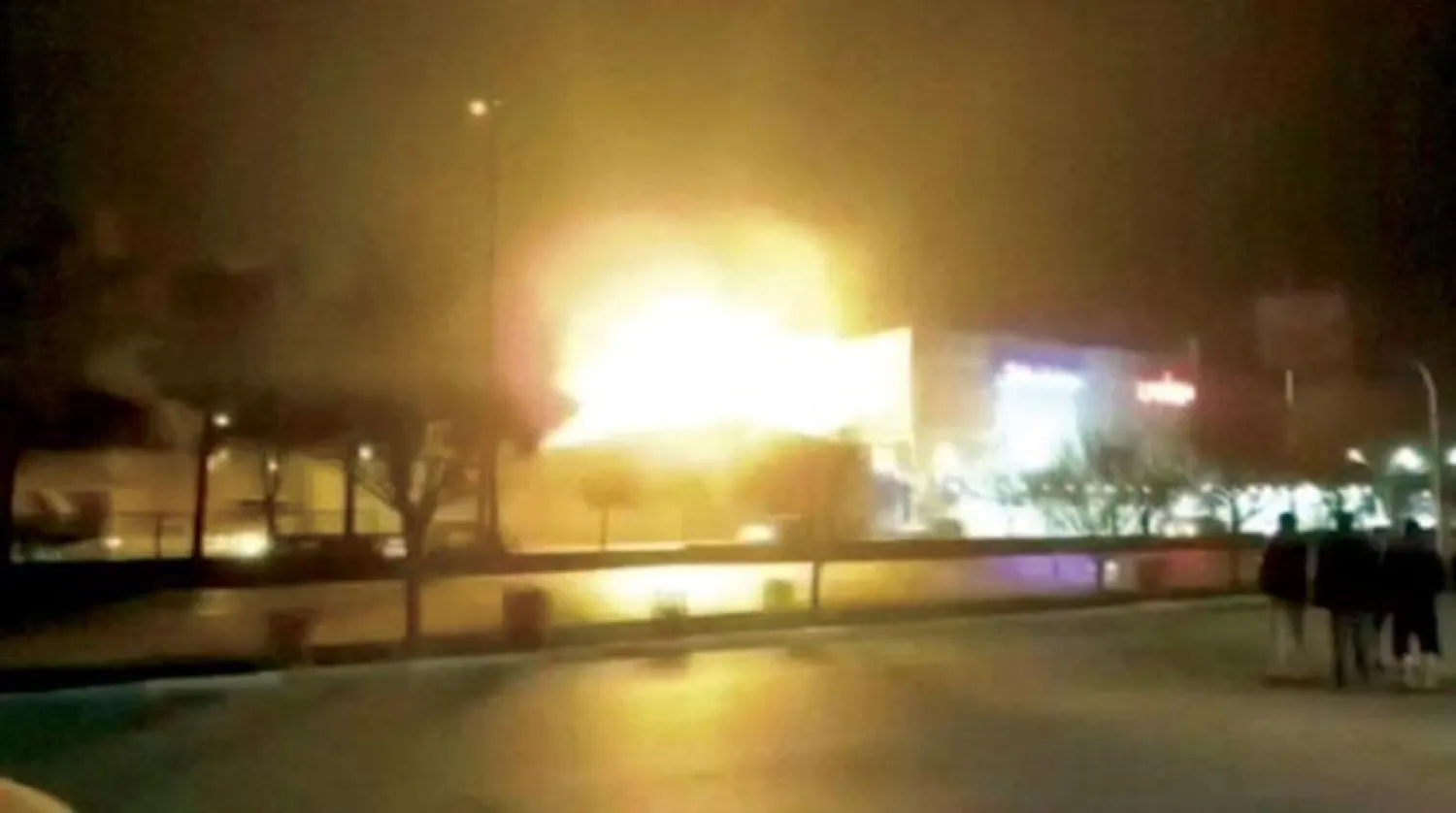The Iranian Supreme National Security Council accused Kurdish opposition factions based in Iraq of being "involved" in a drone attack that targeted a military facility in Isfahan.
Nournews, a news agency affiliated with the Council, reported that parts of the drones that were used to carry out the hostile action against the defense workshop in Isfahan and explosive materials all entered Iran with the participation and guidance of the Kurdish opposition groups stationed in the Kurdistan region of Iraq on the orders of a foreign security apparatus.
The Iranian authorities reported a "failed" drone attack last Saturday targeting a "military complex" of the Ministry of Defense in Isfahan, which includes the "Natanz" nuclear facility.
The Israeli newspaper Jerusalem Post quoted intelligence sources saying the attack "was a phenomenal success."
The Iranian Ministry of Defense said that an anti-aircraft system destroyed a drone while two others exploded, which confirmed that the attack did not cause any injuries but only caused minor damage to the building.
AFP cited Nournews as saying that Kurdish groups brought the drone parts and explosives into Iran from "one of the hardly accessible routes in the northwest" upon "the order of a foreign security service."
The Iranian news agency indicated that Baghdad was repeatedly reminded of the necessity of confrontation with these Kurdish groups.
The agency did not name the foreign security service behind the attack but reported that the parts were delivered to "service's liaison in a border city."
It said that the parts and materials had been assembled and used for sabotage in an advanced workshop by trained forces.
On Monday, Iran summoned the Ukrainian Charge d'Affaires, Sergei Bordeliak, following a recent statement by the senior presidential adviser, Mykhailo Podolyak.
Podolyak took to Twitter to mock the recent attack, saying, "Ukraine did warn you" against the consequences of supplying the drones to Russia.
Moscow announced its willingness to participate in the authorities' investigation of the Isfahan attack.
The Wall Street Journal was the first to report an Israeli role in the attack, quoting several unnamed sources, and a US official, speaking anonymously, told Reuters on Sunday that Israel appeared to be involved in the attack.
In turn, the New York Times quoted senior intelligence officials familiar with the dialogue between Israel and the US as saying that the attack was the work of Mossad.
Iraq's autonomous Kurdish region hosts camps and rear bases operated by several Iranian Kurdish rebel groups, which Iran has accused of serving Western or Israeli interests in the past.
In July, the Iranian Ministry of Intelligence said it had stopped a sabotage network affiliated with Mossad and arrested a Kurdish opposition Komala party group planning to attack a sensitive center in Isfahan.
On May 11, the Iranian Revolutionary Guard Corps (IRGC) said that its forces arrested a "terrorist cell" in the Kurdish regions of Iran, consisting of five people. Later that month, it announced that it contained a network operating under the direction of Israeli intelligence.
The statement came hours after the assassination of the Quds Force commander, Sayad Khodaei, who was described by the Israeli media as the commander of Unit 840, a relatively secret unit that builds terrorist infrastructure and plans to launch attacks against Western targets.
Last April, Israel revealed operations carried out by the Mossad and Shin Bet deep in Iranian territory.
Iran announced in December that it had executed four men for cooperating with Israeli intelligence, carrying out kidnappings, and forcing false confessions.
In November, Iran launched cross-border missile and drone strikes against several of the groups in Iraq, accusing them of stoking the nationwide protests triggered by the death in custody in September of Iranian Kurdish woman Mahsa Amini.
The IRGC sent troops and reinforcements to the borders of the Kurdistan region and threatened a ground operation against the headquarters of the Kurdish parties.
Iran bombed a villa near Erbil airport in March with 12 ballistic missiles, saying it was an Israeli conspiracy center.
The Kurdistan Region authorities denied the claims, and several reports linked the attack to Iran's annoyance with the region's aspirations to export gas to Europe.
Israel, which Iran does not recognize, threatened military action against Tehran if talks between it and world powers to curb nuclear activities fail.









